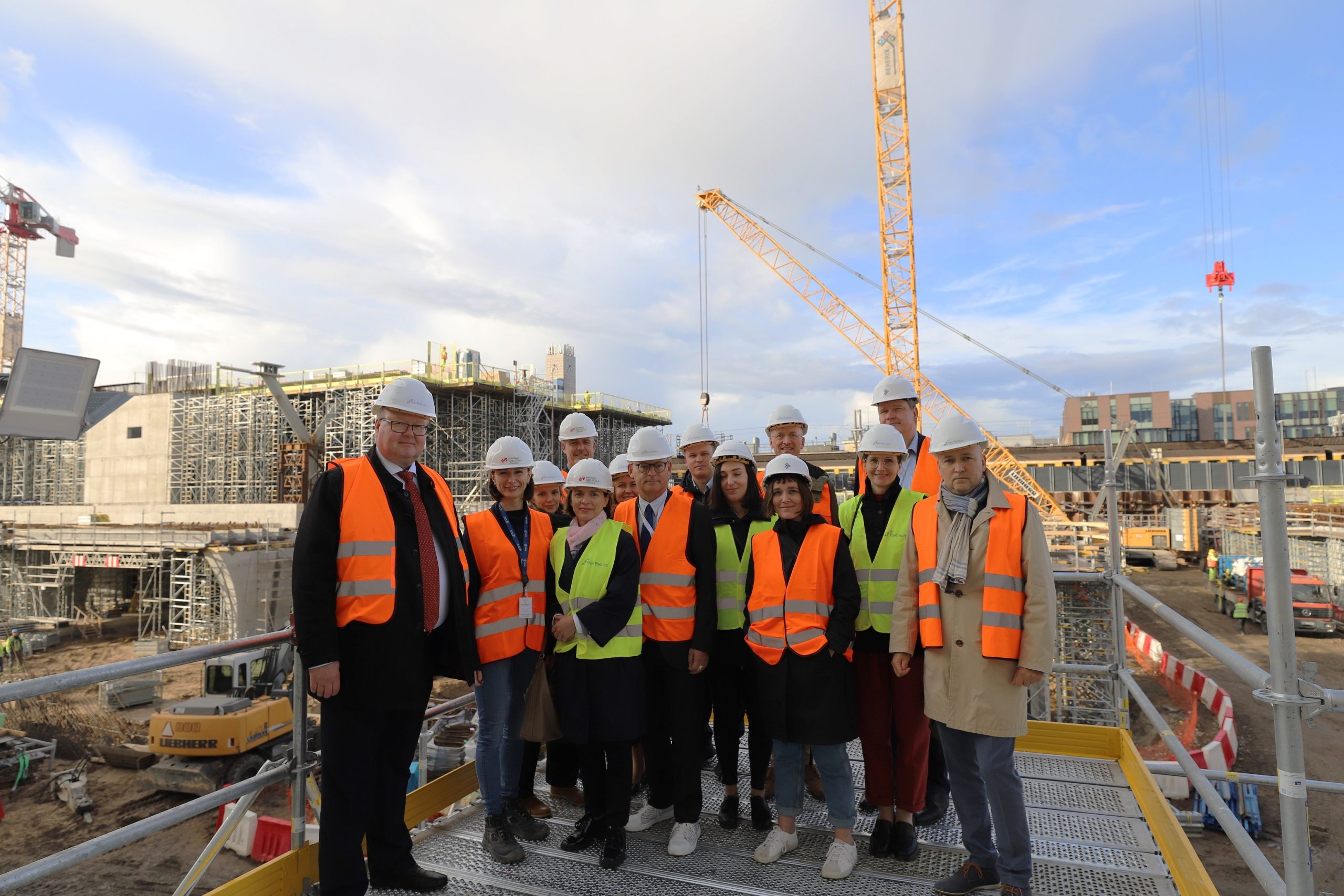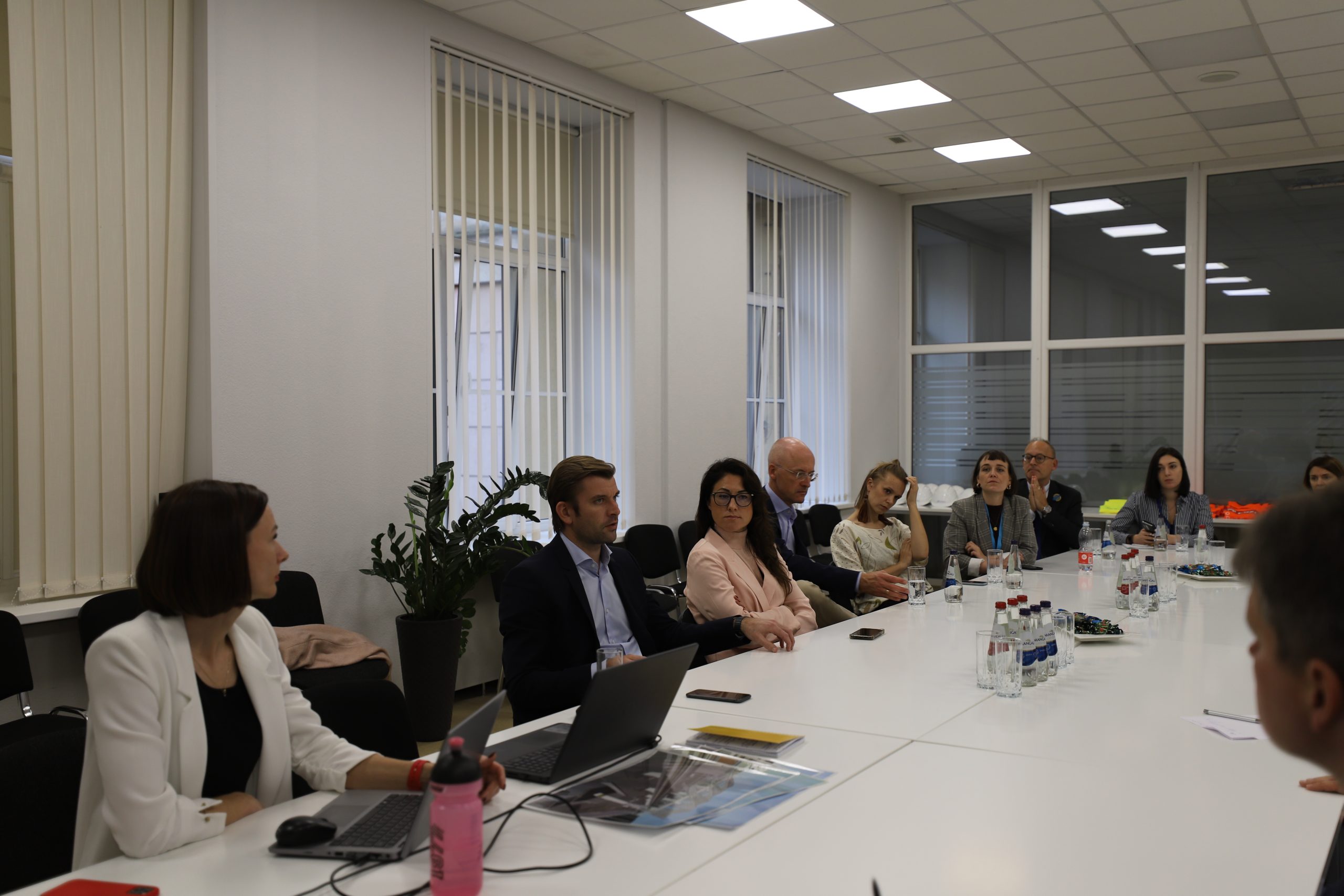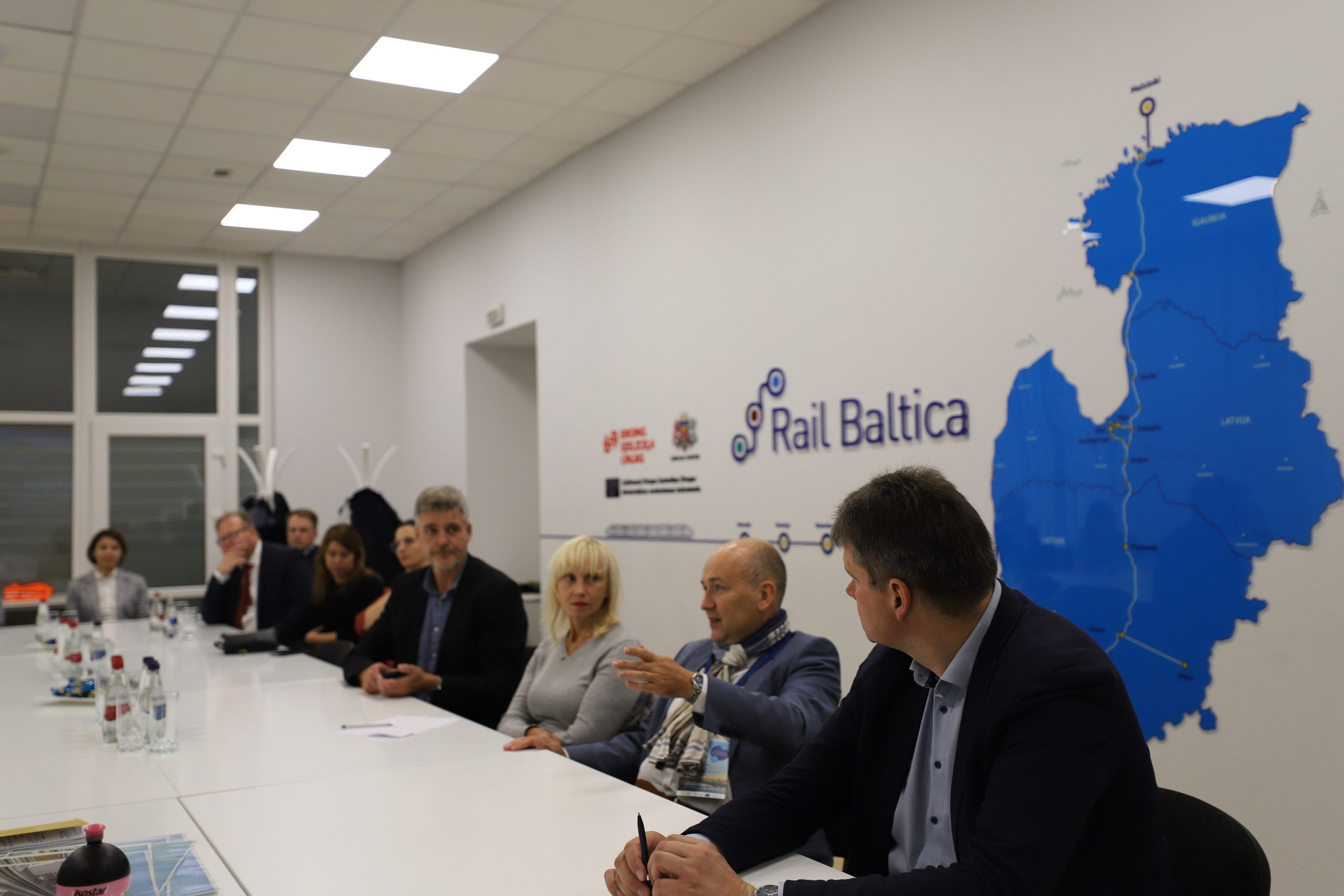On Wednesday, 4 October, the implementers of the Rail Baltica project welcomed a delegation representing the European Union Strategy for the Baltic Sea Region (EUSBSR). The aim of the meeting was to introduce the EUSBSR representatives to the Rail Baltica project and provide an up-close view of the construction activities underway at the Riga Central Node construction site.

The European Union Strategy for the Baltic Sea Region (EUSBSR) represents the first of the four Macro-regional Strategies in Europe, encompassing three primary objectives: saving the sea, connecting the region, and increasing prosperity. The Strategy is an agreement between the Member States of the European Union and the European Commission to strengthen cooperation between the countries bordering the Baltic Sea to meet the common challenges and to benefit from common opportunities facing the region.
 “It was valuable to exchange views on Rail Baltica’s far-reaching effects on the transportation sector within our region, underlining the vital role of strong transport links for economic growth, trade facilitation, and improved mobility across regions and urban areas,” noted Ēriks Diļevs, Technical Director at Rail Baltica joint venture RB Rail AS.
“It was valuable to exchange views on Rail Baltica’s far-reaching effects on the transportation sector within our region, underlining the vital role of strong transport links for economic growth, trade facilitation, and improved mobility across regions and urban areas,” noted Ēriks Diļevs, Technical Director at Rail Baltica joint venture RB Rail AS.
The EU member states involved in the EUSBSR are Sweden, Denmark, Estonia, Finland, Germany, Latvia, Lithuania, and Poland. The EUSBSR implementation is coordinated in close contact with the European Commission and all relevant stakeholders, i.e., other member states, regional and local authorities, inter-governmental and non-governmental bodies.
Policy Area Transport is one the EUSBSR policies which advocates for sustainable, efficient, and eco-friendly transport in the Baltic Sea region. It actively promotes the implementation of innovative and high-tech solutions across all modes of transport, including land, rail, waterborne, and aviation.
 “Rail Baltica stands as a cornerstone in the Baltic Sea Region’s transportation landscape. Beyond its passenger benefits, it also enhances the security of our shared region,” said Tarmo Ots, Lead Coordinator of the Policy Area Transportation of EU Strategy for the Baltic Sea Region. “We sincerely appreciate the time the Rail Baltica team dedicated to meeting with us, especially for the chance to visit the construction site and witness real progress, which offers the most insightful perspective. In my opinion it is very important to introduce this important project outside the Baltic States, therefore I was very glad that my colleagues from Finland, Sweden and Germany joined the visit to hear more about Rail Baltica”.
“Rail Baltica stands as a cornerstone in the Baltic Sea Region’s transportation landscape. Beyond its passenger benefits, it also enhances the security of our shared region,” said Tarmo Ots, Lead Coordinator of the Policy Area Transportation of EU Strategy for the Baltic Sea Region. “We sincerely appreciate the time the Rail Baltica team dedicated to meeting with us, especially for the chance to visit the construction site and witness real progress, which offers the most insightful perspective. In my opinion it is very important to introduce this important project outside the Baltic States, therefore I was very glad that my colleagues from Finland, Sweden and Germany joined the visit to hear more about Rail Baltica”.
The meeting with Rail Baltica took place on the sidelines of the 2023 Annual Forum of the EUSBSR, themed “Safe and Sustainable Baltic Sea Region for Future Generations”. The forum dedicated to green energy, climate, and youth engagement, continues in Riga until 5 October. Riga was chosen as the forum venue due to Latvia’s presidency of EUSBSR from 1 July 2023 to 30 June2024.
